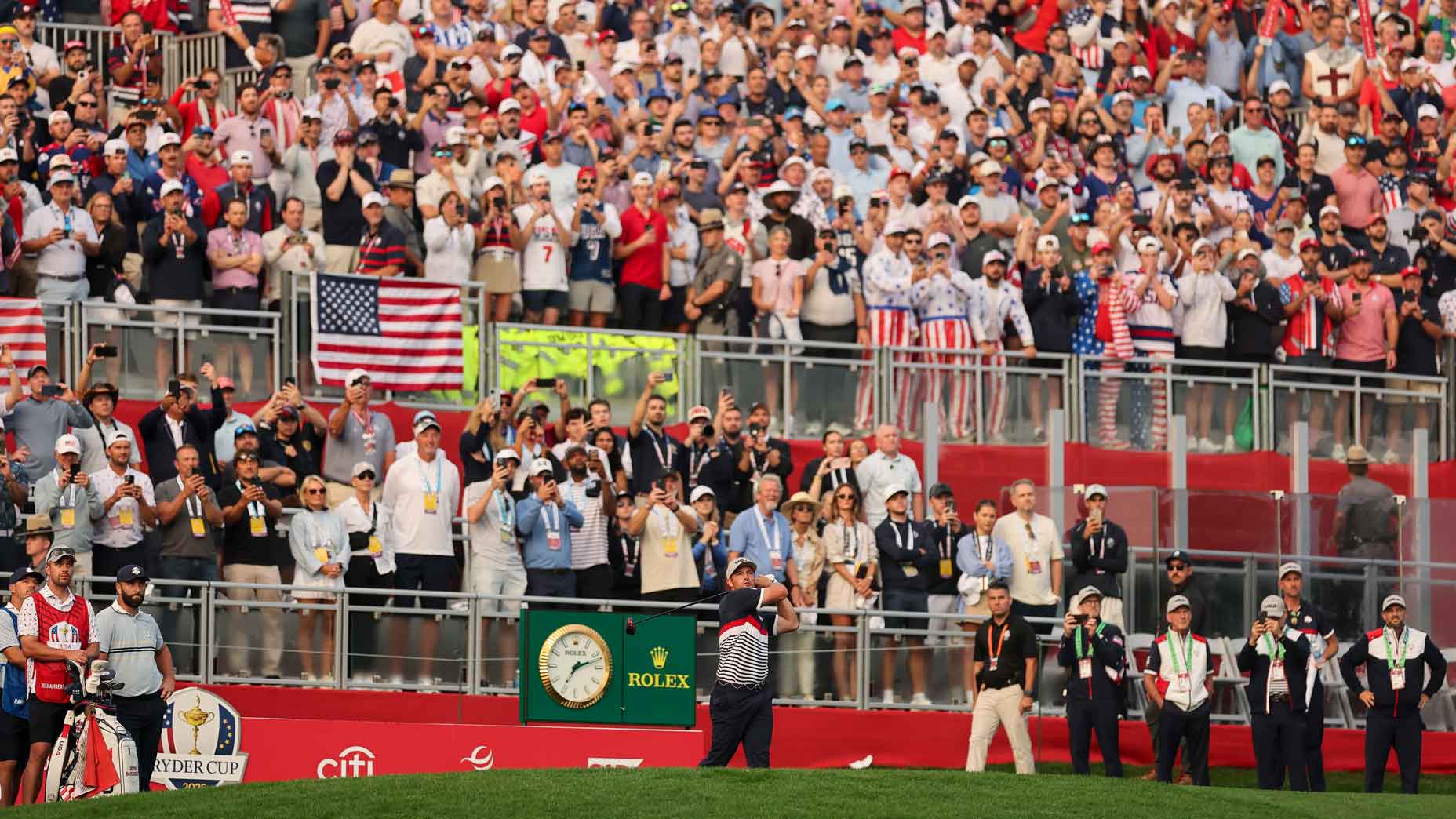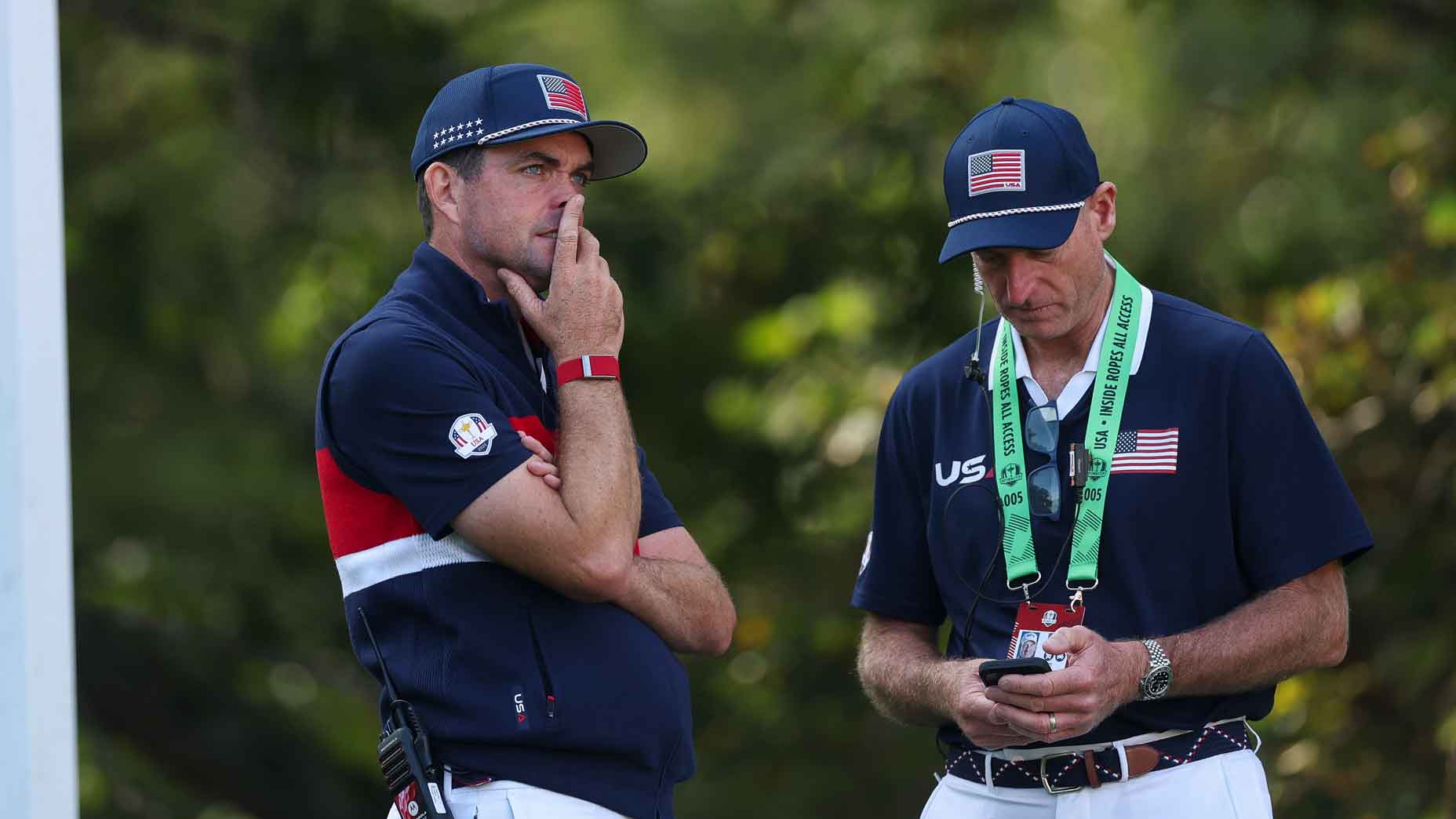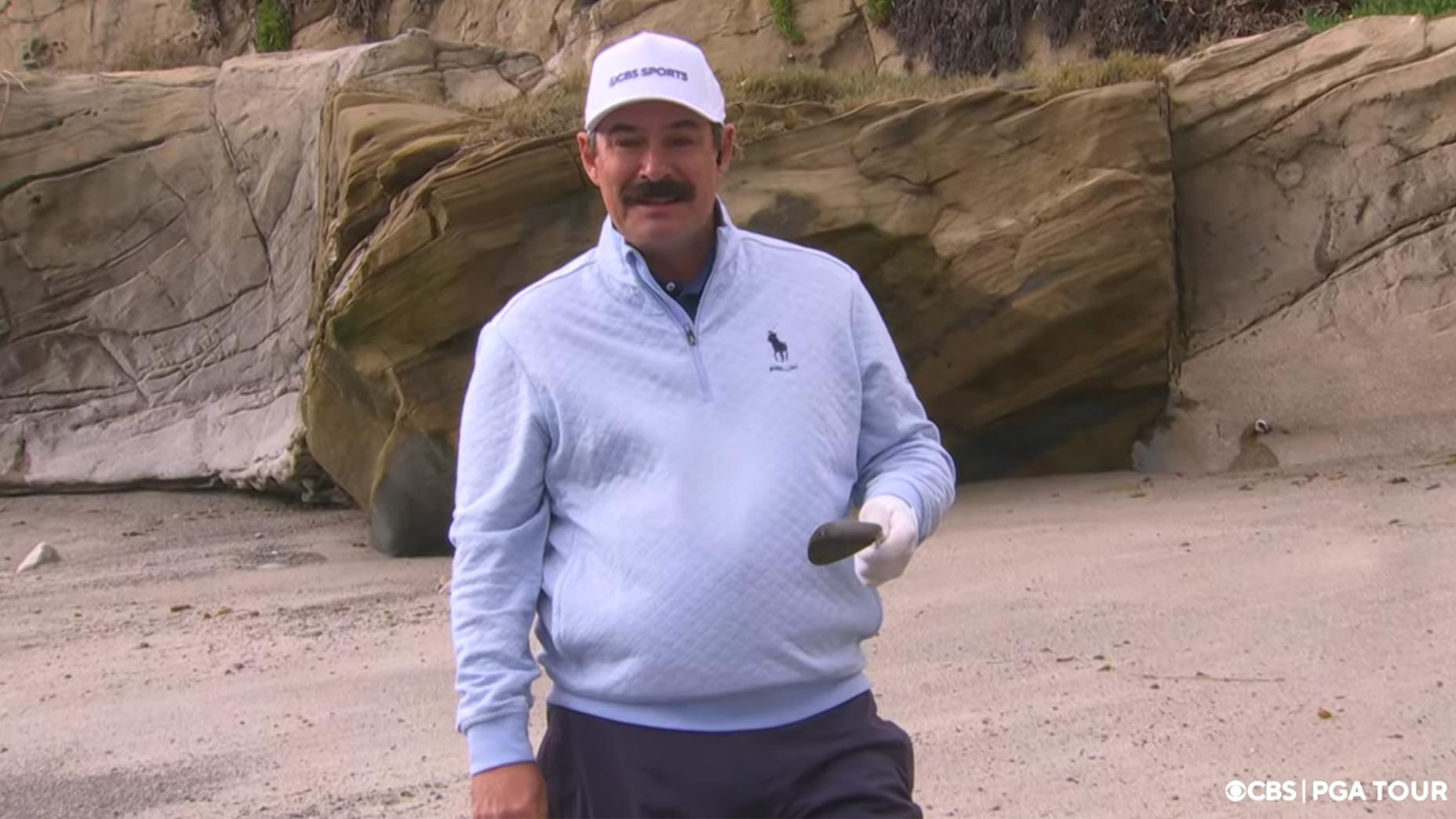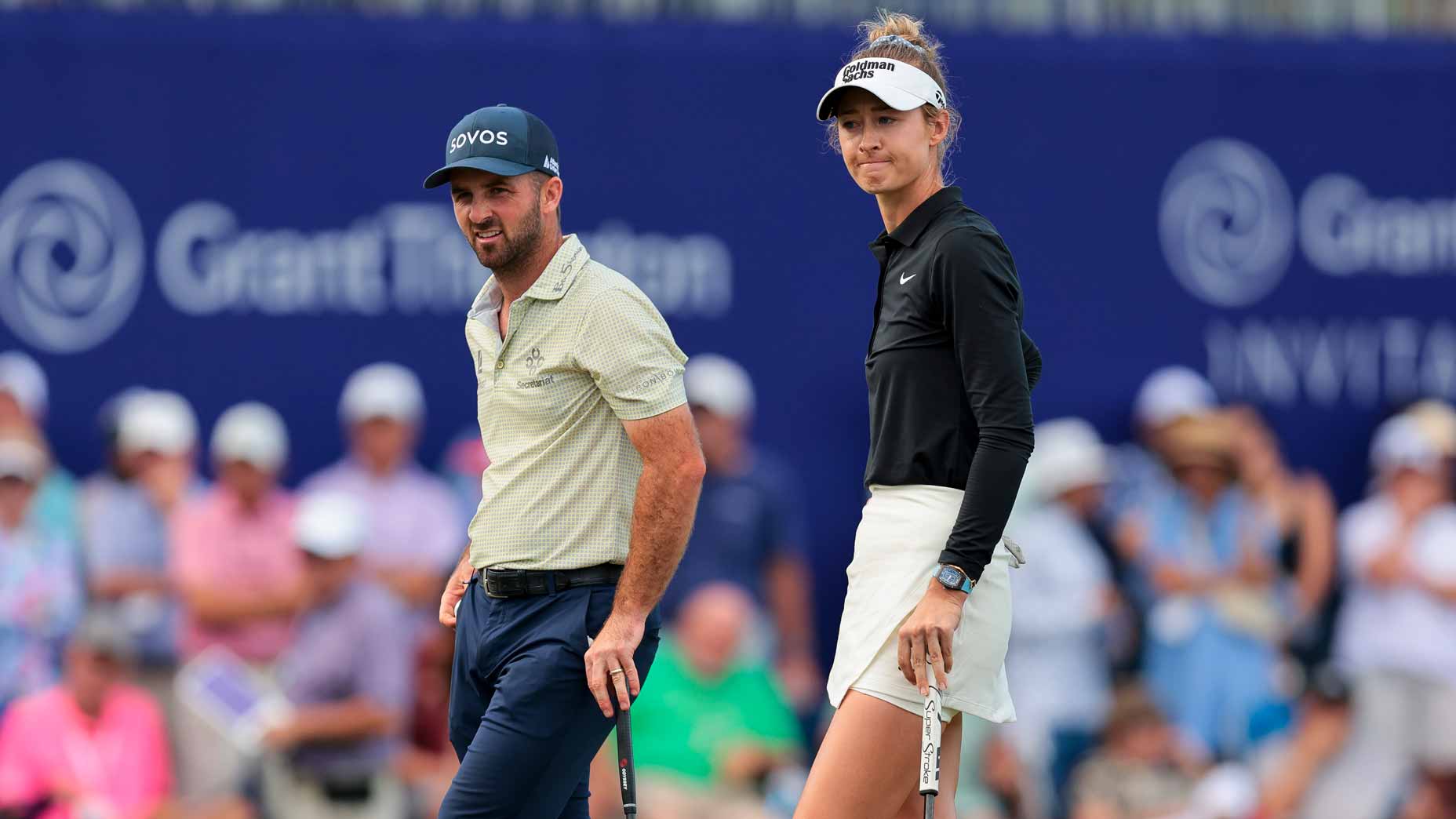The TGL is officially off the ground, and the same can be said for its TV ratings.
Golf’s brand-new simulator league aired to 919,000 average viewers on ESPN on Tuesday night, a robust but not earth-shattering total for its first-ever telecast, according to SBJ’s Austin Karp and first reported by the X (formerly Twitter) handle @YeahClickClack. Notably, the TGL telecast was up by 200,000 average viewers over the same time slot a year ago and attracted a larger audience than its lead-in, the Pitt-Duke basketball game, indicating golf fans tuned to ESPN specifically to watch the new league.
If you’re a TV-savvy golf fan feeling somewhat surprised by those numbers — in either direction — we don’t blame you. The TGL’s numbers placed them almost perfectly between the rough averages for LIV telecasts on the CW and PGA Tour telecasts on CBS and NBC. Does that tell us something concrete about the new league relative to its tour counterparts?
The answer is no. TV ratings are inherently subjective, and it’s much too early to compare the TGL to its tour counterparts. The best way to know a league’s success is to compare it against itself, and to control for as many variables as possible. Is the audience growing or shrinking over time? And if so, by how much? Can the audience change be attributed to airing on cable vs. streaming vs. broadcast TV? Of course, change over time is the one data point we don’t have for the TGL, which is part of what will make the next several weeks of ratings reports so critical to its sustained success.
Still, there are things to learn from week 1’s ratings, and I’ll attempt to distill a few of the key takeaways below.
First off, I’d say these ratings qualify as slightly better than expected. On a scale from “smash-hit” to “utter failure,” I’d put the TGL week 1 audience almost squarely in the middle, perhaps trending a few ticks in the positive direction. A few days ago, I predicted in the neighborhood of 700,000 average viewers for the TGL as a solid baseline for week 1, basing that prediction off ESPN’s monthly averages, which hover around 800,000 at this time of year. The TGL benefits from airing in primetime, when the audience size should be much larger. I figured the beneficial timeslot would be canceled out by the league’s novelty and the absence of the league’s most critical stars from week 1, and I felt bearish about the overall number after the first match ended in a blowout. (Ratings are the average number of viewers watching in any one minute of a telecast, and those numbers can be harmed when viewers tune out en masse early because of a blowout, or when viewers lose attention because of a heavy sequence of commercials — two things could have happened in the final hour on Tuesday.)

If you’re a TGL optimist, you’re likely pointing to the lack of week 1 star power and the blowout as reasons why we can expect the numbers to jump from here, particularly with Tiger Woods competing in week 2 on the day after ESPN hosts its biggest telecast of the year, the NFL Wild Card game. To that I’d agree. We are likely to get a larger week 2 audience, and in the bigger picture, there are reasons to be excited: the telecast moved quickly, the players contributed gamely, and the general feedback for the league was supportive. It’s also impressive that the league managed to wrangle those week 1 numbers without a strong lead-in from the basketball game.
But it’s important to clarify that optimism is not the same thing as certainty — and we’re still many ratings reports away from certifying the TGL’s success. The league still has to prove that it can generate TV audiences when its novelty has worn off, and it needs to show that it can turn the Tiger/Wild Card tailwinds into viewership for, say, the Atlanta Drive vs. The Bay on Feb 17. That’s a big ask, and the jury will remain out until the ratings have showed us otherwise.
For now, the news is good. We can say confidently after week 1 that the TGL is not an immediate flop. We can agree that the first batch of numbers is good, and they might get better still. But we should temper that optimism with a dose of reality: long-term TV ratings growth is still the single-largest challenge for the league, and we know nothing about how these numbers will look in a few weeks.
In other words, keep your eyes peeled. The answers are coming soon. Just not today.










